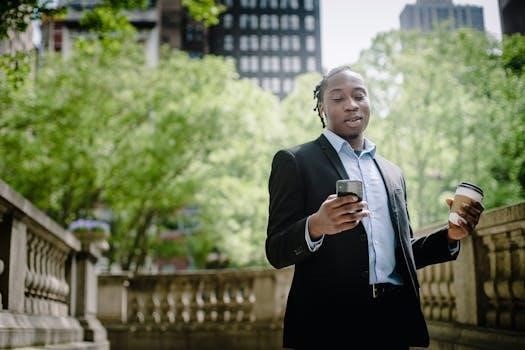
Article Plan⁚ “Bobbies⁚ History, Meaning, and Slang Usage”
The term “bobbies” is a slang term for police officers in the United Kingdom, specifically those in London’s Metropolitan Police. The name originates from Sir Robert Peel, who established the force in 1829. This nickname has persisted throughout history and is commonly found in dictionaries.

The term “bobby” is a widely recognized slang term for a police officer, particularly in the United Kingdom. This nickname is most strongly associated with members of the Metropolitan Police Service in London. Its origins can be traced back to the early 19th century and the establishment of a formal police force in London.
The term “bobby” is derived from the name of Sir Robert Peel, who served as Home Secretary and played a pivotal role in creating the Metropolitan Police in 1829. Due to Peel’s influence and contributions to modern policing, officers were affectionately dubbed “bobbies” in his honor. This term quickly gained popularity and became a common way to refer to police officers in London and eventually throughout the UK.
Today, the term “bobby” remains a recognizable and often endearing term for British police officers. It is a testament to the legacy of Sir Robert Peel and his impact on the development of law enforcement. While there are other slang terms for police officers, “bobby” has a unique historical significance and continues to be used in both casual conversation and popular culture.
Who was Sir Robert Peel?
Sir Robert Peel (1788-1850) was a prominent British statesman and Prime Minister who left an indelible mark on British history. He is best known for his role in modernizing and reforming various aspects of British society, particularly in the areas of law enforcement and economics. Peel served as Home Secretary twice, during which he spearheaded the creation of the Metropolitan Police Service in London in 1829.
Peel’s vision for a professional and disciplined police force was revolutionary for its time. He believed that a well-organized police force could prevent crime and maintain order more effectively than the existing system of watchmen and parish constables. The Metropolitan Police, with its distinctive blue uniforms and focus on community engagement, became a model for modern police forces around the world.
Beyond his contributions to law enforcement, Peel also played a significant role in shaping British economic policy. As Prime Minister, he oversaw the repeal of the Corn Laws in 1846, a landmark decision that promoted free trade and lowered the price of bread for the working class. Sir Robert Peel’s legacy as a reformer and visionary leader continues to be celebrated in Britain today.
The Origin of the Term “Bobby”
The term “Bobby,” a popular and enduring nickname for a British police officer, traces its roots directly to Sir Robert Peel, the founder of the Metropolitan Police Service in 1829. As the driving force behind the creation of this new and innovative law enforcement agency, Peel’s name quickly became synonymous with the officers who served within it.
The public, recognizing Peel’s pivotal role, affectionately began referring to members of the Metropolitan Police as “Peelers.” However, the nickname “Bobby,” a more familiar and endearing diminutive of Robert, soon gained prominence and became the preferred term. This transition from “Peelers” to “Bobbies” reflects the public’s acceptance and perhaps even affection for the new police force.
The term “Bobby” stuck and spread throughout London and eventually the rest of the United Kingdom. It became deeply embedded in the cultural lexicon, appearing in literature, songs, and everyday conversation. Even today, nearly two centuries after the establishment of the Metropolitan Police, “Bobby” remains a widely recognized and understood term for a British police officer, a testament to Sir Robert Peel’s lasting influence on law enforcement and British society.

The Establishment of the Metropolitan Police
The Metropolitan Police Service, established in 1829, marked a watershed moment in the history of British law enforcement. Spearheaded by Sir Robert Peel, then Home Secretary, the creation of a centralized, professional police force for London was a radical departure from the existing, often disorganized and ineffective, system of parish constables and watchmen.
Prior to 1829, law enforcement in London was fragmented and largely reliant on unpaid volunteers or poorly trained individuals. This system struggled to cope with the rapid population growth and increasing urbanization of the city, leading to rising crime rates and a general sense of insecurity among the public.
Peel’s vision was to establish a disciplined, accountable, and publicly funded police force that would proactively prevent crime and maintain order. The Metropolitan Police was structured along military lines, with officers undergoing rigorous training and adhering to a strict code of conduct. Uniformed and easily identifiable, these officers were tasked with patrolling the streets, deterring criminal activity, and responding to public calls for assistance. The establishment of the Metropolitan Police served as a model for modern policing.
“Bobby” as a Slang Term
The term “bobby,” a widely recognized slang term for a British police officer, emerged almost immediately following the establishment of the Metropolitan Police in 1829. This affectionate nickname stems directly from the founder of the force, Sir Robert Peel, whose first name was often shortened to “Bobby.” The term quickly gained popularity among the public, becoming a common and enduring way to refer to members of the new police force.
The adoption of “bobby” as slang reflects a complex relationship between the police and the community. While it carries a certain degree of familiarity and even affection, it also serves as a slightly informal and perhaps even playful way to address or refer to law enforcement officers. The term has persisted for nearly two centuries, demonstrating its deep entrenchment in British culture and language.
Interestingly, another term, “peeler,” also derived from Sir Robert Peel’s name, was used, particularly in Northern Ireland. However, “bobby” has proven to be the more enduring and universally recognized slang term for a British police officer. Its widespread use highlights the impact and legacy of Sir Robert Peel on British policing.
Other Slang Terms for Police in the UK
While “bobby” remains the most iconic slang term for police officers in the UK, a variety of other colorful expressions have emerged over time. These terms often reflect regional variations, historical contexts, or specific perceptions of law enforcement. One such term is “peeler,” also derived from Sir Robert Peel, although less common than “bobby,” it still holds historical significance, particularly in certain regions.
Beyond the Peel-related nicknames, other slang terms include “copper,” a term with debated origins but widely used to refer to police officers. Additionally, more informal and sometimes derogatory terms exist, reflecting varying attitudes toward the police. These terms can range from playful to critical, highlighting the complex relationship between the public and law enforcement.
The existence of multiple slang terms underscores the diverse ways in which the public interacts with and perceives the police. These terms often evolve and change over time, reflecting shifts in social attitudes and cultural norms. While “bobby” maintains its prominent position, the other slang terms offer a glimpse into the rich and varied language surrounding policing in the UK.
Decline in PCSO Numbers
In recent years, a notable trend has emerged within the UK’s policing landscape⁚ a decline in the number of Police Community Support Officers (PCSOs). These officers, introduced to enhance community engagement and visibility, have experienced a reduction in their ranks, impacting local policing strategies.
Statistics reveal a significant decrease in PCSO numbers compared to previous years. Several factors contribute to this decline, including budget cuts, restructuring initiatives, and shifts in policing priorities. As a result, communities may experience a reduced presence of these officers, potentially affecting local crime prevention efforts and community relations.
The decline in PCSO numbers raises concerns about the future of community-based policing. These officers play a crucial role in building trust, gathering intelligence, and addressing local issues. Their reduced presence may strain resources and impact the effectiveness of traditional policing methods. The long-term consequences of this trend warrant careful consideration and strategic planning to ensure effective community safety.
“Bobby” in Popular Culture
The image of the “bobby” has permeated popular culture, appearing in various forms of media, including literature, film, and television. This enduring representation reflects the iconic status of the British police officer and their role in society. From classic novels to modern crime dramas, the “bobby” often embodies qualities of fairness, integrity, and dedication to duty.
In literature, “bobbies” are frequently depicted as reliable figures who uphold law and order. Their presence adds a sense of stability and security to the narrative. Films and television shows often portray “bobbies” in both serious and comedic roles, showcasing their versatility and adaptability. These portrayals contribute to the public’s perception of the police force.

The representation of “bobbies” in popular culture can influence public opinion and shape perceptions of law enforcement. Positive portrayals can enhance trust and confidence, while negative portrayals may erode public support. Therefore, the media’s depiction of “bobbies” plays a significant role in shaping the relationship between the police and the community.
The term “bobby” carries a rich history, deeply intertwined with the establishment of modern policing in the United Kingdom. Originating from Sir Robert Peel, the founder of the Metropolitan Police, the term has evolved from a simple nickname to a symbol of British law enforcement. The “bobby” represents more than just a police officer; it embodies a tradition of community policing, public service, and dedication to upholding the law.
Despite changes in policing strategies and the introduction of new technologies, the “bobby” remains a recognizable and respected figure in British society. The enduring legacy of the “bobby” is evident in its continued use in popular culture, literature, and everyday conversation. This term serves as a reminder of the historical roots of policing and the values that underpin the profession.
As policing continues to evolve, the “bobby” serves as a touchstone, connecting modern law enforcement to its foundational principles. The legacy of the “bobby” is a testament to the lasting impact of Sir Robert Peel’s vision and the enduring importance of community-focused policing.
